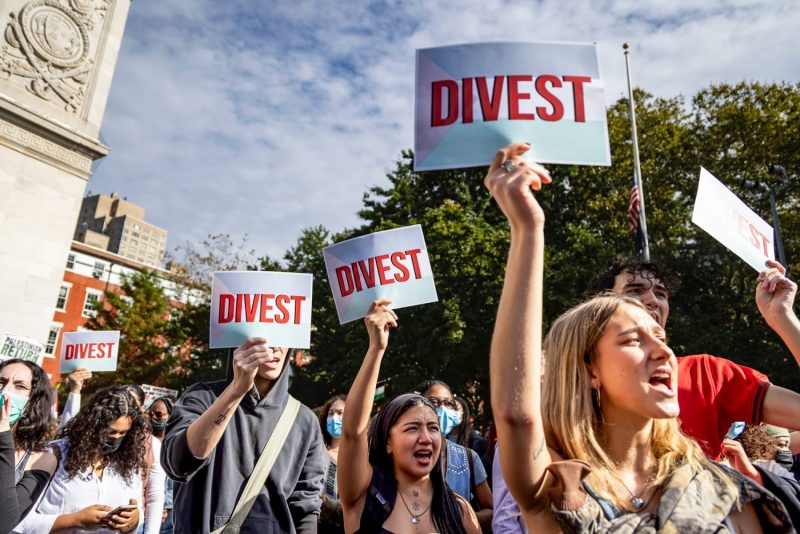College Protesters Want Their Schools to Divest From Ties to Israel: Here’s What That Means
The movement for colleges and universities to divest from ties to Israel has gained momentum in recent years, sparking debates on campuses across the world. For those unfamiliar with the concept of divestment, it essentially means removing financial investments in companies or organizations that are seen as engaging in activities perceived as unethical or harmful.
In the context of Israel, the call for divestment is often tied to concerns over human rights violations and the ongoing Israeli-Palestinian conflict. Proponents of divestment argue that by maintaining financial ties with companies that are allegedly involved in the occupation of Palestinian territories or other controversial practices, universities are indirectly supporting these actions and undermining their own ethical standards.
On the other hand, opponents of divestment often argue that such actions are overly simplistic and politically motivated. They contend that divestment campaigns unfairly target Israel while ignoring other countries or conflicts with similar or worse human rights records. Additionally, some critics question the effectiveness of divestment as a means to bring about meaningful change in complex geopolitical issues.
Colleges and universities are not new to divestment campaigns. Historically, academic institutions have divested from companies involved in issues such as apartheid in South Africa, tobacco production, and fossil fuel extraction. These divestment movements have been driven by student activists, faculty members, and other stakeholders seeking to align their institutions’ investments with their values and principles.
The push for divestment from Israel is part of a broader effort to use economic leverage as a tool for social and political change. By withdrawing financial support from companies or entities deemed complicit in harmful practices, divestment advocates aim to send a message of condemnation and create pressure for the targeted entities to reform their behavior or policies.
As with any controversial issue, the call for colleges to divest from ties to Israel has sparked heated debates and generated passionate responses from both supporters and detractors. Some argue that divestment is a legitimate form of peaceful protest and a way to hold accountable those involved in perceived injustices. Others caution against the potential negative repercussions of divestment, including financial risks and strained relationships with academic partners or funders.
Ultimately, the decision to divest or maintain ties with Israel is a complex issue that requires careful consideration of ethical, legal, financial, and political factors. Colleges and universities facing pressure to divest from Israel must engage in transparent dialogues, consult with relevant stakeholders, and weigh the potential benefits and drawbacks of such a significant action.
In conclusion, the debate over divesting from ties to Israel is a reflection of the broader discussions around ethics, social responsibility, and activism on college campuses. Whether or not institutions choose to heed the call for divestment, it is clear that the issue will continue to provoke thought-provoking conversations and prompt reflection on the role of universities in addressing global challenges.

